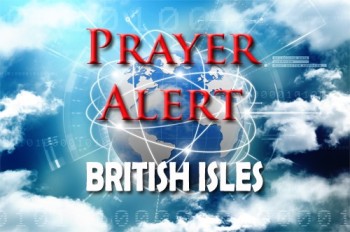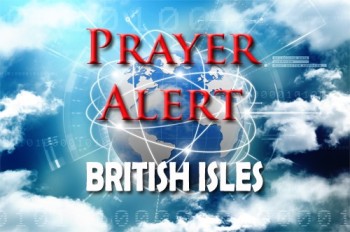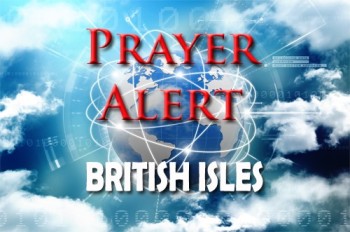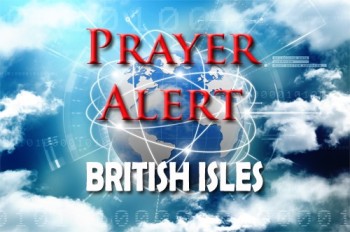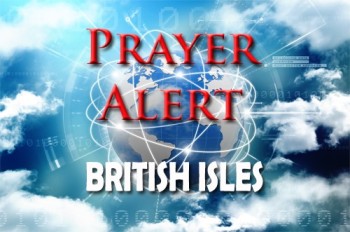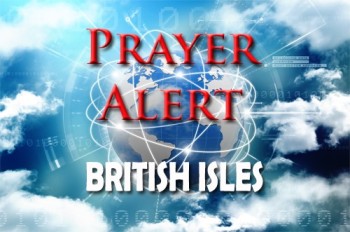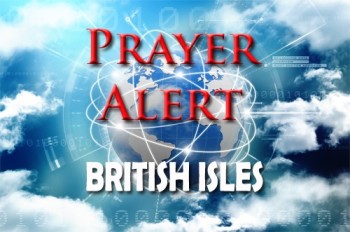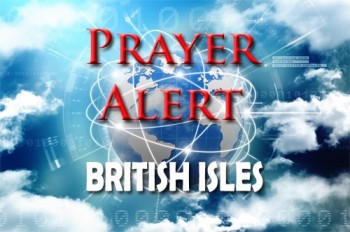Displaying items by tag: Defence
UK not adequately prepared for defence, say MPs
A new report from the parliamentary defence committee warns that Britain is not adequately prepared to defend itself, its overseas territories, or its NATO allies from modern threats. Despite plans to boost domestic defence production - including six new munitions factories and increased spending toward ‘war-fighting readiness’ - MPs say progress is too slow; the country remains over-dependent on the USA for critical capabilities such as intelligence, air-to-air refuelling, and troop transport. Noting severe gaps in air and missile defence, they are concerned that promised improvements in civil resilience are moving at a ‘glacial pace’. The committee’s chair Tanmanjeet Singh Dhesi urged the Government to communicate more clearly with the public about real security risks, including drone incursions and cyber threats, noting that national defence requires national engagement. Ministers say new factories and investments will create jobs and strengthen security, but the report insists urgency is needed. The report coincides with concerns about a Russian spy ship operating just outside British territorial waters: see
MoD figures show armed forces still shrinking despite recruitment drive
New Ministry of Defence (MoD) figures reveal that despite a rise in applications and new recruits, the UK’s armed forces continue to shrink. In the 12 months to June 30, 13,520 people joined the regular forces, up 13% on the previous year, but 14,020 left, leaving the overall strength reduced by 500. While applications surged, the overall full-time strength of the army, navy, and RAF fell by 2,190 (2%), with the reserves down 1.2%. Personnel often cite poor housing conditions as a key reason for leaving, though the government has pledged investment to improve service homes. Defence leaders warn the decline threatens national security at a time of heightened global instability and looming threats from Russia. While ministers stress decisive action is being taken, critics argue that Britain’s defence capability remains dangerously undermanned.
Ukraine: Estonia, Lithuania, Latvia all willing to contribute troops for security guarantees
Estonia’s president, Alar Karis, has said it is prepared to contribute troops to an international reassurance force that the ‘Coalition of the Willing’ plans to send to Ukraine as a post-ceasefire security guarantee. He said Estonia is not overly concerned that this would weaken NATO’s eastern flank, though discussions with alliance leaders continue. Lithuania and Latvia are also willing to participate, but Poland has declined, citing the need to protect its own borders. The reassurance force would be deployed only in non-contact areas within Ukraine. NATO secretary-general Mark Rutte noted that while NATO itself will not formally participate, the alliance is quietly discussing how to ensure resources are not overstretched. About 80,000 US troops are currently in Europe, but there could be a reduction in numbers as Washington’s foreign policy pivots towards the Indo-Pacific. The 'Coalition of the Willing' will meet again on 4 September; the security guarantees it will aim to provide for Ukraine following a truce are almost ready, but confirmation of US support is now needed.
UK must ‘actively prepare’ for a war on home soil
The UK’s newly released National Security Strategy warns that the nation must actively prepare for potential warfare on home soil. Citing escalating global instability, including threats from Iran and the ongoing war in Ukraine, it calls for 'national resilience exercises' involving the public, businesses, and academia, aiming to build preparedness against cyberattacks, sabotage, and hostile actions from states like Russia, Iran, and China. Cabinet minister Pat McFadden stressed the need for Britain to be 'clear-eyed and hard-edged' in facing these threats, while Keir Starmer pledged to increase defence spending to 5% of GDP by 2035. Critics, such as Priti Patel, argue that the government lacks a detailed roadmap for defence spending targets. Nonetheless, the strategy invokes the wartime spirit of national unity and determination, urging a whole-of-society response to future challenges and affirming optimism grounded in the resilience of the British people.
UK to expand nuclear deterrent with US jets
The UK is set to expand its nuclear capabilities by purchasing twelve F-35A fighter jets capable of carrying US-made B61 nuclear bombs, marking the largest upgrade to Britain’s deterrent since the Cold War. Keir Starmer announced the move at the NATO summit in the Hague, warning that peace can no longer be taken for granted amid rising global tensions. The jets, costing £80 million each, will operate as part of NATO’s nuclear mission and be stationed at RAF Marham. This reintroduces a nuclear role for the RAF, dormant since 1998, and complements the UK's Trident submarine-based system. The decision comes amid warnings of potential attacks on UK soil and a broader strategic shift to counter growing threats from Russia and China. Starmer emphasised national security as his government’s top priority, hinting that tax increases may follow to fund defence. NATO secretary-general Mark Rutte and Donald Trump welcomed the UK’s strengthened commitment.
Japan / Philippines: reaffirming commitment to cooperation and security
Japanese prime minister Ishiba Shigeru and Philippine president Ferdinand Marcos Jr have reaffirmed their countries’ commitment to peace, stability, and resistance to foreign aggression in the Indo-Pacific. The leaders highlighted expanding defence, economic, and diplomatic cooperation, especially amid increasing tensions in the West Philippine Sea. Without naming China directly, both underscored maritime security as a shared concern. Marcos praised Japan's contributions, including coastal surveillance equipment, which have upgraded the Philippines' defence capabilities. He noted that amid growing international divisions, cooperation between the two countries was ‘more important than ever’ to realise a free and open Indo-Pacific. Japan has also supported the Philippine Coast Guard (PCG) through loans for large patrol vessels. These ships are actively deployed in Philippine waters to assert sovereignty and monitor Chinese activity. Both leaders described the alliance as grounded in shared values and mutual respect, marking a new chapter in their long-standing diplomatic relationship.
Navy's flagship on mission to Far East, 'defying' China
The Royal Navy’s flagship, HMS Prince of Wales, has set sail from Portsmouth for an eight-month mission to the Far East as part of Operation Highmast, a major multinational military deployment. Leading a strike group composed of British, Canadian, and Norwegian warships, the carrier will demonstrate the UK's naval strength, support global trade routes, and affirm alliances in the Indo-Pacific region. While the Ministry of Defence has not confirmed whether the fleet will pass through the contested Taiwan Strait, the mission comes amid rising tensions with China over Taiwan and territorial claims in the South China Sea. Commodore James Blackmore affirmed that the task force is prepared for all eventualities and seeks to deter threats through presence and readiness. Families gathered to bid farewell to the 2,500 service members on board. The deployment also serves diplomatic, economic, and symbolic purposes: supporting NATO, promoting UK exports, and showcasing national defence capabilities. This show of force, blending strategy with solidarity, reflects the UK’s commitment to peace, stability, and the rules-based international order.
More American bombers arrive in Britain to deter Russia
Four US air force bombers have arrived at RAF Fairford as part of its Bomber Task Force Europe, reinforcing NATO’s deterrence posture amid rising tensions with Russia. The bombers have already participated in joint missions with Finland, France, and Sweden to enhance allied air force interoperability. Major-general Joseph Campo highlighted the mission’s strategic significance, stating that Bomber Task Force missions project US combat power, ensuring lethality and readiness in an evolving security landscape. Another commander said that training with NATO allies strengthens operational cohesion and enhances the ability to deploy decisive capabilities whenever needed. The bombers will participate in joint exercises across Europe, showcasing agility and rapid-response capabilities. This deployment affirms US commitment to deterring Russian aggression and maintaining a robust defence presence in the region.
World entering a new nuclear age, head of armed forces warns
Admiral Sir Tony Radakin, Chief of Defence Staff, has warned of a new, more complex nuclear age. He highlighted the growing threats posed by nuclear proliferation and the erosion of global agreements controlling their use. He cited Russia's provocative actions, including simulated nuclear attacks on NATO countries, as well as China's expanding nuclear arsenal, Iran's nuclear ambitions, and North Korea's advancing ballistic missile program. Radakin described the 'third nuclear age' as marked by multiple, concurrent threats and the absence of robust security frameworks. This contrasts with the Cold War's defined blocs and subsequent disarmament efforts. He emphasised the critical role of the UK’s nuclear deterrent, particularly its continuous-at-sea submarines, in influencing Russia's behavior. While stating that a direct Russian attack on the UK or NATO remains unlikely due to effective deterrence, Radakin urged vigilance and strengthened defense strategies. He called for national resolve in confronting these escalating security challenges. See
Mystery drones over US air bases in England
Sixty British troops have joined the United States Air Force (USAF) to investigate a series of unidentified drones spotted flying over three bases in Suffolk and Norfolk. The incidents have raised concerns about security, although the drones have not been deemed hostile. The bases play crucial roles in US military operations. USAF has confirmed multiple sightings during nighttime hours, but no source or intent has been identified. The Ministry of Defence emphasised robust security measures at all defence sites, and both British and US authorities are closely monitoring the situation to ensure the safety of personnel and infrastructure. Efforts to determine the origin and purpose of the drones continue.

